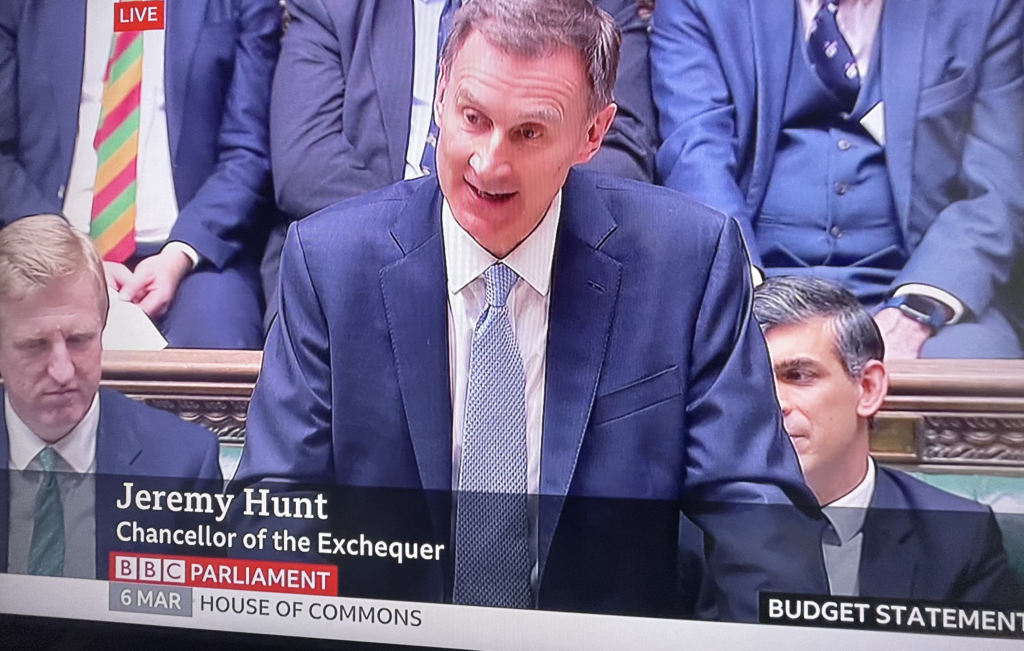In what the Chancellor termed was a “Budget for long-term growth”, Jeremy Hunt has outlined the government’s latest tax and spending plans.
Acknowledging that the last few years have been tough for the UK economy, citing the legacy of the COVID-19 pandemic, an energy price spike driven by the war in Ukraine, and globally high inflation, the Chancellor believes that the economy is now beginning to turn a corner, adding that “because the government is sticking to the plan it can now make further tax cuts for working people, boosting growth whilst keeping the public finances on a sustainable path”.
Key announcements in today’s Spring Budget which affect the sector include:
- Increased VAT registration threshold for small businesses from £85,000 to £90,000 from 1st April, significantly lower than the £100,000 many in the industry were hoping for.
- A cut in the main rate of employee National Insurance by 2p from 10% to 8% from 6th April 2024. Combined with the 2p cut announced at Autumn Statement 2023, it is claimed this will save the average worker on £35,400 over £900 a year.
- A further 2p cut in the main rate of self-employed National Insurance on top of the 1p cut announced at Autumn Statement 2023. This means that from 6th April 2024 the main rate of Class 4 NICs for the self-employed will now be reduced from 9% to 6%. Combined with the abolition of the requirement to pay Class 2, the government claims this will save an average self-employed person on £28,000 around £650 a year.
- An extension of the Recovery Loan Scheme, which will be renamed to the Growth Guarantee Scheme. Under the scheme, the government guarantees 70% of loans of up to £2m to companies which have a turnover of less than £45m.
- Draft legislation will be published to extend full expensing – which offers 100% first-year relief to companies on qualifying new main rate plant and machinery investments – to apply to leased assets.
- An extension to the freeze on alcohol duty from August 2024 to 1st February 2025.
- Fuel duty frozen for the next 12 months and an extension to the temporary 5p cut on fuel duty which was due to end this month.
- Support to tackle tax non-compliance by making further investments, including in HMRC’s capacity to collect tax debts. These measures are forecast to raise over £4.5 billion of tax revenue by 2028-29.









